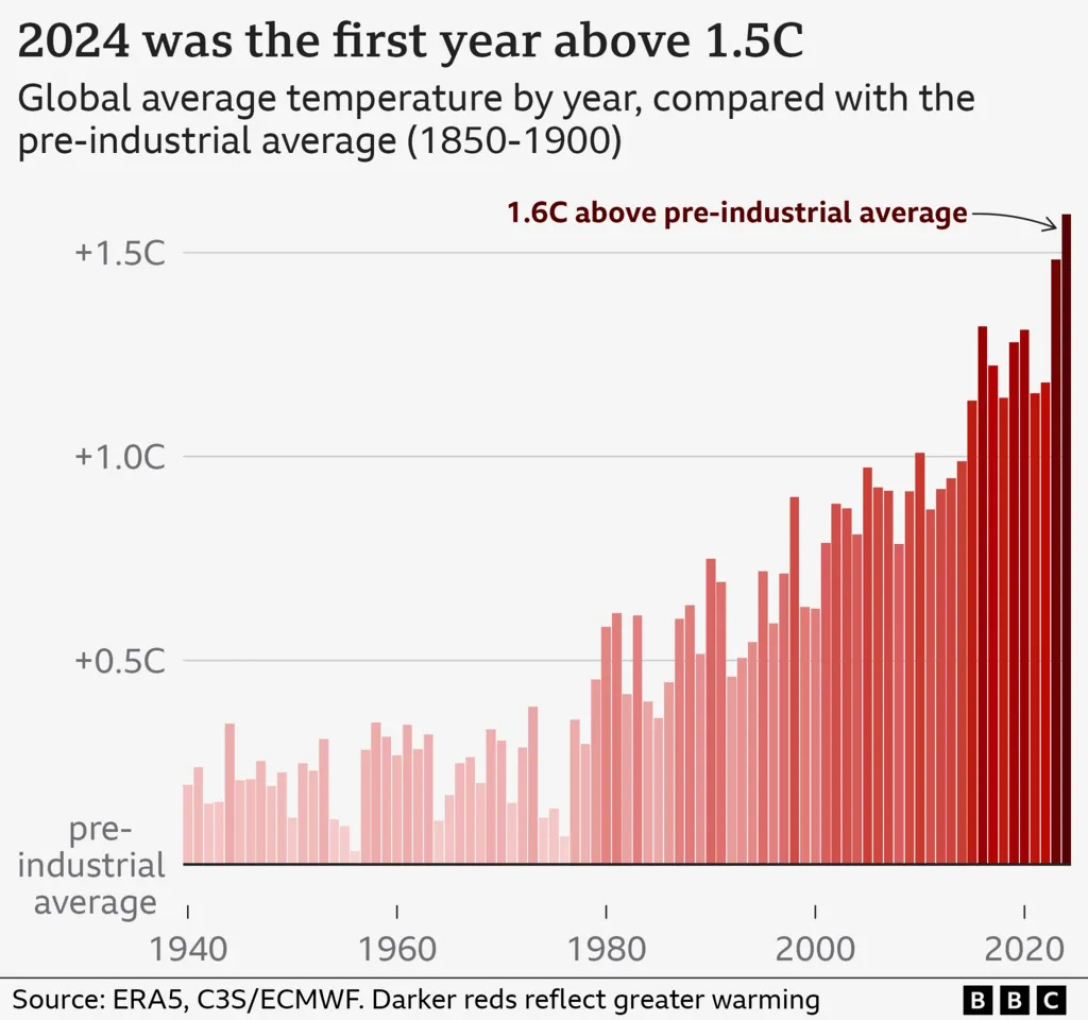For the first time in history, Earth has crossed a dangerous threshold, with scientists deeming 2024 a symbolic year. (Photo)
For decades, scientists have been warning about the consequences of the climate crisis and emphasizing the need to adhere to the provisions of the Montreal Agreement to mitigate the Earth's climate change. Despite the promises made by world leaders to do everything in their power to curb global warming, researchers believe that last year, the Earth moved a step closer to warming by more than 1.5°C, as reported by BBC.
This statement was made by researchers from the European Climate Service Copernicus, one of the primary global data providers. They announced that 2024 has become the first calendar year in recorded history to surpass this symbolic threshold and has also been the hottest year on record.
It is crucial to understand that this figure does not imply that the international target of 1.5°C has been breached. This metric pertains to a long-term average over decades. However, scientists caution that this brings us closer to a tipping point, as emissions from fossil fuel usage continue to steadily heat the planet.
Recently, UN Secretary-General António Guterres referred to last year's series of temperature records as a "climate breakdown." He also urged the global community to change course immediately, as humanity simply does not have time to waste.

According to Copernicus, average global temperatures in 2024 were approximately 1.6°C higher than during the pre-industrial period — a time in human history when large volumes of fossil fuels had not yet been burned. Consequently, the planet's temperature exceeded the heat record of 2023 by just 0.1°C, effectively making the last decade the hottest in Earth’s recorded history.
Researchers have already stated that last year's heat was primarily driven by anthropogenic greenhouse gas emissions, including carbon dioxide. Moreover, observations indicate that these emission levels remain at record highs. Natural weather conditions, such as El Niño, which causes surface waters in the eastern tropical Pacific Ocean to become unusually warm, played a lesser role.

Experts also reminded us that the risks associated with climate change, including heatwaves, rising sea levels, and loss of wildlife, will be significantly higher if the planet exceeds the 2°C warming mark. At the same time, studies show that the world is getting closer to breaching the 1.5°C barrier, and no one is willing to predict precisely when we will surpass this threshold.
According to Miles Allen from the University of Oxford's Department of Physics, the current trajectory of global warming is likely to lead to the world exceeding the 1.5°C long-term warming threshold by the early 2030s. In fact, this event will carry political significance, but it will not mean that the game is over for climate action.
As noted by climate scientist Zeke Hausfather from the Berkeley Earth research group, warming by even a tenth of a degree matters, and the climate consequences will worsen each time. Even fractions of a degree of global warming can lead to more frequent and intense extreme weather events, such as heatwaves and heavy rainfall.